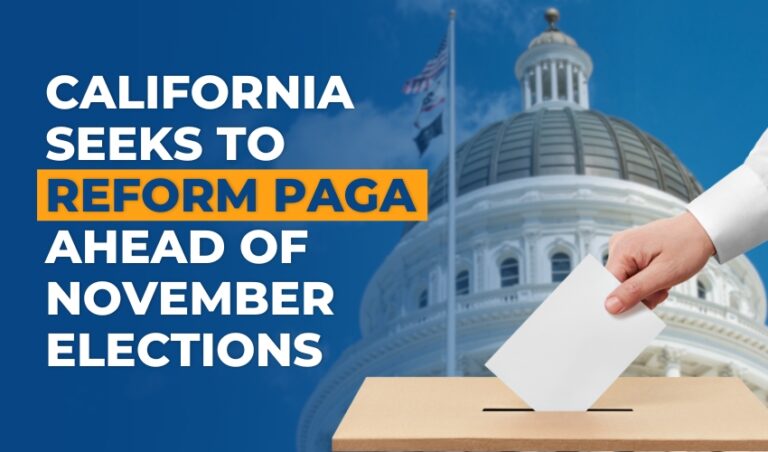On June 18, 2024, a group of business and labor leaders reached an agreement to reform the Private Attorneys General Act, also known as PAGA. This last-minute agreement was created before the November elections to help address unforeseen harms that resulted from the controversial law, which negatively impacted businesses and led companies to spend billions of dollars to settle cases.


Due to this law, Walmart had to pay their employees $65 million in settlement when workers accused the company of not having enough employee seats in 2018. In 2023, Google settled for $27 million due to accusations of unfair labor practices. A February 2024 study reported that over $10 billion has been spent by companies since 2013 for lawsuits that were filed because of PAGA.
The PAGA was created to allow employees to file a lawsuit against their employers on behalf of the state for alleged violations of the California Labor Code. However, since its creation in 2004, it has faced criticisms because it created a litigious environment where minor infractions by companies resulted in costly lawsuits, leading to huge financial losses.
The new agreement, primarily brokered by Governor Gavin Newsome between labor unions and business groups, was designed to protect workers’ rights without compromising businesses. It aims to avoid placing huge financial burdens on small and medium enterprises. The amendments were created to help streamline solving labor violations while reducing the opportunity for frivolous lawsuits. It also emphasizes that workers will still have the ability to address their valid grievances effectively.
“We came to the table and hammered out a deal that works for both businesses and workers, and it will bring needed improvements to this system,” Gov. Gavin Newsom said in a statement. “This proposal maintains strong protections for workers, provides incentives for businesses to comply with labor laws, and reduces litigation.”
The proposal allowed businesses to be given a certain amount of time to correct alleged violations before facing litigation. This compromise aims to encourage cooperation between employers and workers to reduce legal costs and administrative burdens.
The agreement is a rare event where both labor unions who advocate for workers’ rights and business organizations who mainly focus on economic benefits and profit agree. Currently, they are preempting a potentially divisive ballot measure and opted to try and push for solutions through legislation instead.
Here are some of the specific changes in the agreement that are currently being examined:
- Penalties on employers who promptly resolve the complaint after receiving a PAGA notice will be capped;
- Penalty money received by the employees will increase from the allocated 25% to 35%;
- Malicious and fraudulent employers will be punished with more severe penalties for violating labor laws;
- Courts will be allowed to limit the scope of claims presented during trials and provide injunctions to allow businesses to remedy their labor law violations;
- Workers will now be required to prove that they have personally been affected by the alleged violations being brought up in the suit.
“We are happy to have negotiated reforms to PAGA that better ensure abusive practices by employers are cured and that workers are made whole, quicker,” said Lorena Gonzalez with the California Labor Federation. “PAGA is an essential tool to help workers hold corporations accountable for widespread wage theft, safety violations, and misclassification. We appreciate the work of the Governor’s office and Legislative Leadership to help us reach an agreement with the Cal Chamber of Commerce to protect this innovative law and strengthen labor law enforcement.”
The involved parties are optimistic about the potential of these reforms because bipartisan support rarely happens in these negotiations. This is further proof that this amendment may provide a better solution that balances the interests of both workers and employers in California.






